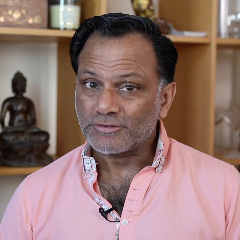You are not currently logged in. Please create an account or log in to view the full course.
The Evolution of Treatments for Depression
- About
- Transcript
- Cite
Practical Applications of Psychology
In this course, Dr Ashok Jansari (Goldsmiths, University of London) explores the practical applications of psychology. In the first lecture, we think about the evolution of psychological treatments for depression. In the second lecture, we think about the impact of psychology on education. Next, we think about how psychology has informed the understanding and treatment of neurodevelopmental conditions. In the fourth and final lecture, we think about how psychology has informed the study and treatment of dementia. Image Credit: Photo by Kateryna Hliznitsova on Unsplash
The Evolution of Treatments for Depression
In this lecture, we think about the evolution of treatments for depression, focusing in particular on: (i) understanding biopsychology to be the study of how our brain informs and produces our behaviour; (ii) recognising the role of the dopamine system in experiences of depression; (iii) the informing of the drug industry through biopsychological research, to produce antidepressants which target the dopamine system specifically; (iv) Aaron Beck’s research into the cognitive explanations for depression; (v) Beck’s concept of systematic errors of logic, which can contribute to a tendency to suffer from depression; (vi) Beck’s development of Cognitive Behavioural Therapy (CBT) as a treatment for depression through tackling ‘faulty thinking’; (vii) a key part of CBT being to increase focus on positive life events and decrease focus on negative ones; (viii) findings after the development of CBT that its combination with drug therapy greatly increased their effectiveness and reduced the likelihood of relapse into depression; (ix) recent research that has found that patients who have suffered two or more instances of clinical depression are far more likely to relapse after treatment; (x) the introduction of mindfulness, which focuses its practitioners on the current moment and is derived from meditation; (xi) understanding the logic behind ‘living in the moment’ being the avoidance of depression, which focuses on the past, and anxiety, which focuses on the future; (xii) the effectiveness of mindfulness mediation for reducing heart attacks after heart surgery; (xiii) Hayney and colleagues’ 2014 on the effectiveness of mindfulness meditation on improving the immune system; (xiv) a study on the impact of meditation on biological brain ageing; (xv) Mindfulness Based Cognitive Therapy (MBCT), which combines elements of CBT and mindfulness meditation and demonstrates an ability to lower depression relapse rates in patients with multiple depressive instances in their past.
Cite this Lecture
APA style
Jansari, A. (2024, July 09). Practical Applications of Psychology - The Evolution of Treatments for Depression [Video]. MASSOLIT. https://massolit.io/courses/practical-applications-of-psychology
MLA style
Jansari, A. "Practical Applications of Psychology – The Evolution of Treatments for Depression." MASSOLIT, uploaded by MASSOLIT, 09 Jul 2024, https://massolit.io/courses/practical-applications-of-psychology

